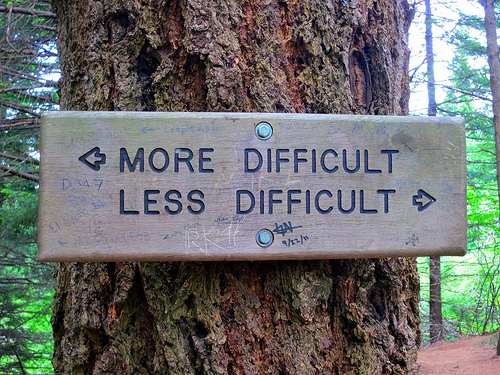It would help if there were greater understanding that anger never helps to solve a problem. – Dalai Lama

Anger is a decision. The more often anger is your solution, the easier the decision to use it will become. If you use it rarely, it will become the difficult choice. Which will you choose?
What does that mean?
This quote, to me, is about the futility of anger. Anger is many things to many people, but it is rarely useful in solving problems.
More precisely, if anger is used in the solving of a problem, it will only create a larger problem. Then how does solve the new problem? Will it ever get better, or only get worse?
And the people who were on the receiving end of the anger, are they going to be satisfied with a simple solution, or will the anger of the first party be visited back on them?
There probably isn’t a single person on the planet who does not understand the futility of using anger to solve a problem. Yet somehow it continues to happen, all around the world.
Why is refusing to misuse anger important?
I state this carefully, as anger has a place in our lives. It can be motivational when we view it correctly. There will be those who disagree, and the disagreement will most likely be of the exact definition of the word anger. Can you be perturbed, miffed, upset, or cross without being at least a little angry?
Perhaps it is just a matter of degree, but the point remains that using anger to solve a problem is not a great way to accomplish things, right? The stronger the anger, the less successful the solution will likely be in the long run. The more anger acts, the worse the outcome, even if it is delayed by some time.
The problem with anger is it’s a very powerful emotion. Powerful emotions are the antithesis of clear thought. And that may be the reason why, despite knowing better, that so many people use anger in an attempt to solve a problem. They just aren’t thinking clearly enough to recognize the situation into which they have placed themselves.
By acting out in anger, you become that person. You become the example that you would point out to others as one not to follow. You become a part of the problem, instead of the solution. You make even more difficult the solving of the problem which incited the anger in the first place. In short, you just made it worse. Not good!
Where can I apply this in my life?
We all have things which get under our skin. We all have things which bug, irritate, bother, or otherwise make us rather unhappy. But our emotional state is our choice. You can choose to be angry, or you can choose to be just a bit miffed, irritated, bothered or whatever other word you choose to use. I prefer less-than-thrilled or some other similar term.
What do you say when asked if you are angry? If you simply answer yes or no, what is the threshold for changing a no to a yes? Would you say yes less often if you had a third option, such as annoyed? What can you do to keep your words and thoughts from conspiring to lead you down a path you might not want to travel?
If you do notice you are becoming truly angry, what do you do? How do you reduce the tension or divert the anger? What have you done in the past, and how well did it work? What can you do next time to help it be more effective? What do your friends do, and how do they do it? How effective are their techniques? Might it help you?
Are there particular things you feel when you begin to get aggravated, before you are even to angry? What of those could you consider reliable hints that something unhelpful is coming your way? How early can you head off anger? What has worked in the past? What could you do to make it more effective?
That is a lot of questions. Take a moment and actually consider them. What are you going to do next time? If you think about it now, you might be able to divert yourself (or another) from the fruitless path of anger. If you wait until you are angry, you aren’t going to be thinking very well, are you?
Once you have some ideas with which to work, the next step is to try them out. When do you typically become aggravates, and tend towards angry? Which technique do you think will work best in that situation? How can you stack the deck in your favor? More questions to answer. Are you willing to take the time to answer them?
Anger is a choice. If you do it a lot, it becomes an easy choice. However, if you practice using other methods to solve your problems, you are less likely to turn to it for a solution. Eventually, anger becomes the difficult choice, because of the habits you have built. But that will take some effort, especially if anger is your go-to tool for solving things.
The final question is this: “Are you willing to put in the effort to improve your life and the lives of others?” Your next action will answer that question.
From: Twitter, @DalaiLama
confirmed at : it’s his own feed…
Photo by Sasquatch I
